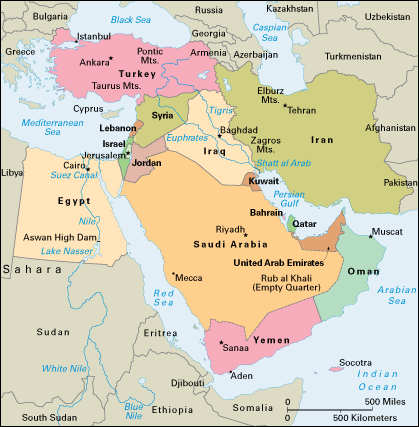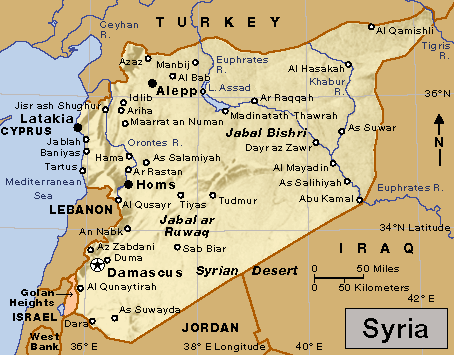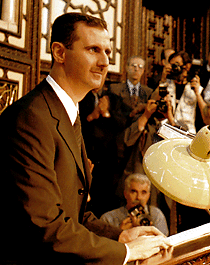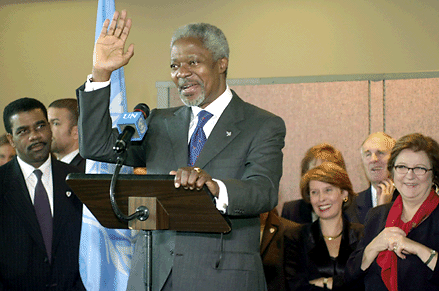Iran Makes Show of Backing Assad Regime in Syria
Wednesday, August 8th, 2012August 8, 2012
Syrian President Bashar al-Assad appeared on state television yesterday for the first time in weeks to greet Iran’s security chief, Saeed Jalili. Jalili assured Assad that Syria is part of a vital regional alliance–an “axis of resistance”–that Iran will not allow to be broken. Assad, in turn, affirmed his determination “to cleanse the country from the terrorists and fight against terrorism unreservedly.”
The government of Iran is currently trying to secure the release of 48 Iranians abducted by Free Syrian Army rebels from a bus in Damascus on August 4. The Free Syrian Army claims the men are members of Iran’s Revolutionary Guard. The government of Iran maintains that they are pilgrims who had been heading t a Shi’ite Muslim religious site.

Iran is Syria's only ally in the Middle East. (World Book map)
In a major blow to Assad, Syria’s prime minister, Riad Hijab, defected on August 6 and fled to Jordan. Hijab is the highest-profile defector from the Assad regime since the uprising began in March 2011.
In Aleppo, residents continue to flee the embattled city by the tens of thousands as government fighter jets accelerate bombing raids in an attempt to drive rebels from neighborhood strongholds. United Nations monitors pulled out yesterday “due to deterioration in the security situation.” Talal Atrissi, a Lebanese political analyst, noted, “The regime is ready to destroy all of Aleppo. The regime will never allow the fall of Aleppo because it would start a countdown to their demise.”
Additional World Book articles:
- Arab Spring
- Middle East: From Fall to Spring (a Special Report)
- Syria 2011 (a Back in Time article)





